Women’s refuges set to overturn ban on self-identifying transgender staff
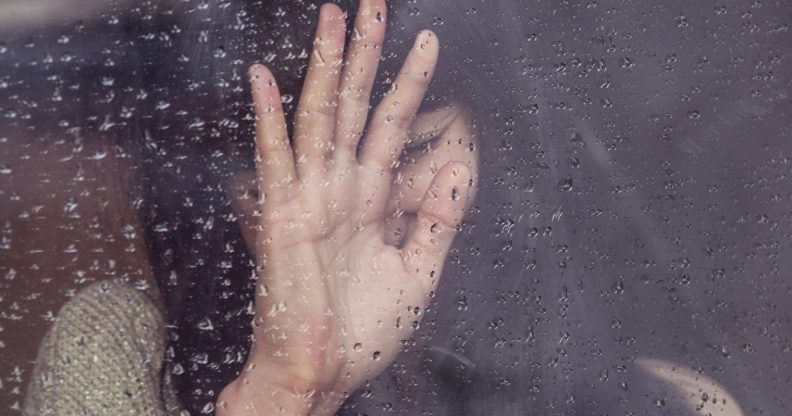
(Photo: Creative Commons)
One of the UK’s largest domestic violence charities is planning to overturn a ban on self-identifying trans women working in their refuges.
Women’s Aid has begun the process to allow trans women to work in their refuges based on self-identifying as a woman, rather than requiring a change to their birth certificate.
The four branches of Women’s Aid in the UK supervise over 300 refuges where women and children can be protected from abusive home environments.
Interim co-chair of the charity’s board Mary Mason said to The Sunday Times that a review was underway.
She said: “We have agreed to start a review of our whole transgender policy, including the possibility of employment for self-declared transgender women without a gender recognition certificate.”
This review will now be discussed with refuge users and other charity members, with the process expected to take three to four months.
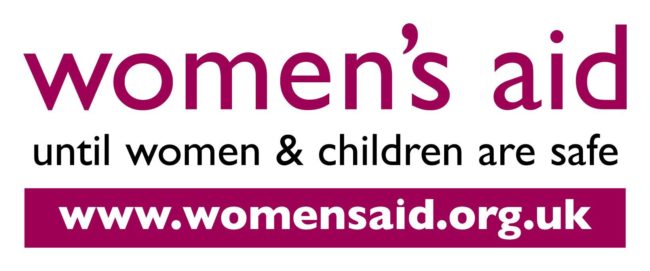
(Photo: Women’s Aid)
In a statement given to PinkNews, a Women’s Aid England spokesperson said that they were committed to including transgender people.
They said: “We want to create a society that is free from gender-based violence and where the rights to equality and diversity are realised for everyone.
“We are committed to ensuring that transgender people are treated with respect and equality and do not experience harassment or discrimination on the basis of their gender identity or for any other reason.
“We welcome applications from trans women at Women’s Aid Federation England.”
Although the charity oversees around 300 refuges across the UK, Women’s Aid do not set blanket policies for the services.
This means that after the review, the charity can only guide refuges to allow trans women to work within their services.
The charity said: “Women’s Aid is a federation, and as such it is not in our power to set the policies of the expert, independent, organisations that form our membership and run direct services for survivors.
“What we will do is use the outcome of the review to offer guidance to our membership on best practice.”
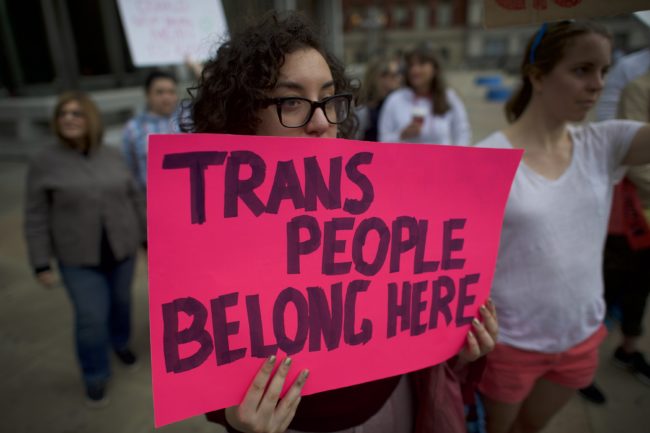
(Getty)
Previously, members of staff working with the women in the refuges would either need to be a cisgender woman or a trans woman with a gender recognition certificate.
A gender recognition certificate is a document to change a person’s legally recognised gender and birth certificate, which can be given two years after a person begins transitioning.
Last year, Former Secretary of State for Education and Minister for Women and Equalities Justine Greening announced plans to review the Gender Recognition Act.
This is the 2004 law that allows transgender people to gain legal recognition through the complex process of getting a gender recognition certificate.

(Chris Jepson)
LGBT advocates had called for the law to be streamlined to reduce the hurdles that transgender people have to jump through to get a Gender Recognition Certificate, adopting a simpler ‘self-declaration’ system that operates in Ireland and other countries across Europe.
Discussing the effect these reforms may have on their work, a Women’s Aid spokesperson told PinkNews: “With the government proposing to consult on and review the Gender Recognition Act, like many other organisations, we are taking the opportunity to review our internal policies.
“We are beginning this work now, and will talk to our member organisations and survivors as part of the process.
“Any decisions on our internal policy will be taken once this review is completed.”
The review of the Gender Recogntion Act was reportedly stalled last year after an anti-transgender media campaign.
Addressing the topic of trans women working in refuges, Ms Greening told The Sunday Times that she supported the potential changes but would also be “absolutely listening to the voices of women’s groups in all this and their concerns.”
Related: Jack Monroe – I was a victim of domestic abuse
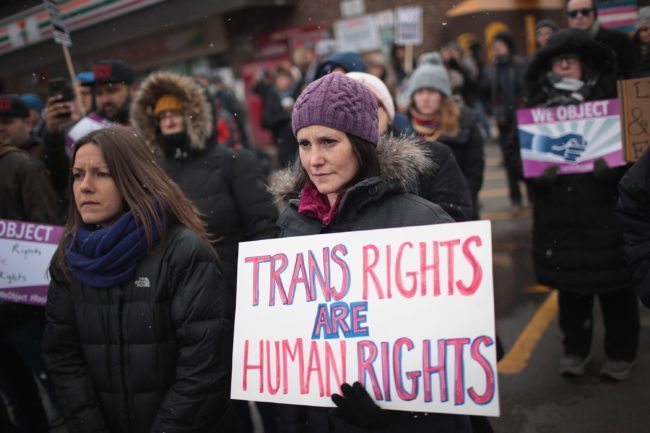
(Photo by Scott Olson/Getty Images)
This move has already been highly controversial and is part of a larger debate about trans women — who are women — and their involvement in women’s spaces.
Karen Ingala Smith, the head of domestic violence charity NIA, said that charities who supervised refuges had a duty to maintain a women’s only space.
She said: “I hope refuge providers protect the ‘for women by women’ vision of the feminist survivors and activists who built the refuge movement.
“A women-only space is one of the ways we can create a sanctuary for women to begin their recovery from men’s violence.”
She continued: “Women and children escaping violent men should at the very least be able to expect this of a refuge.”
Last year, Labour MP Caroline Flint sparked a backlash after stating that women’s spaces, including refuges, needed to be protected from trans women who ‘look and sound like a man.’
She said: “It’s important that women feel safe there. It’s difficult to judge if someone says they define themselves as a trans woman but for all intents and purposes they look and sound like a man.”
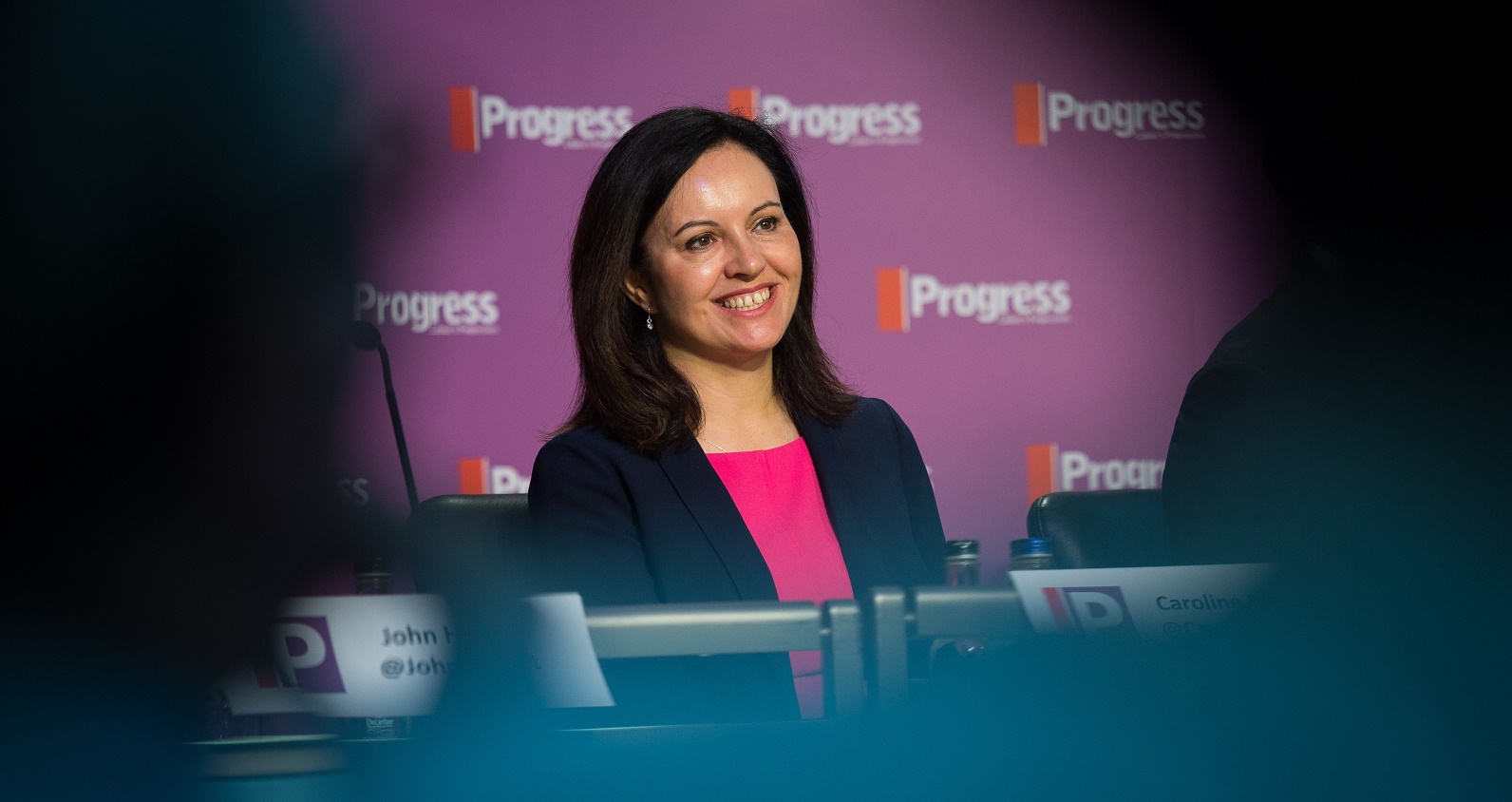
(Getty)
The MP insisted that she “absolutely supports trans rights”, though she added: “There’s also a worry when people start to impose the idea that children are acting a certain way because they don’t want to be a boy or a girl.
Domestic violence services for LGBT people have undergone significant changes in the last few years.
The UK’s only specialist LGBT domestic violence charity Broken Rainbow closed in 2016.
PACE, a London-based charity that worked since 1985 to provide mental health services for the LGBT+ community, also closed in 2016.

